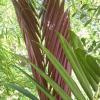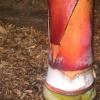All Activity
- Past hour
-
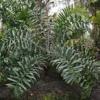
Cycad cones and flushes
DippyD replied to Urban Rainforest's topic in TROPICAL LOOKING PLANTS - Other Than Palms
-
koleaproduction joined the community
-
wwwwwwwwwwwwwwwwww11 started following Pleased to Announce My Cold Hardy Palm Guide
-
Pleased to Announce My Cold Hardy Palm Guide
wwwwwwwwwwwwwwwwww11 replied to Allen's topic in COLD HARDY PALMS
Girls In Your City - No Selfie - Anonymous Casual Dating https://SecreLocal.com Womens In Your Town - Anonymous Sex Dating - No Selfie New Girls Amber Molly EVELYN Stone Sam Suki Emily Belmont Mary - Today
-
This is excellent advice. I hope it's not too late for my brother's one. I'll tell him to put it in the balcony, perhaps it will dry faster there. The weather is perfect right now, about 70F.
-
Darod Petty and I are coming to the San Diego area the week of March 16th. We have a large truck and are on a buying trip for Northern California Palm Society. members So far we have almost 200 palms ordered from several nurseries in the area. There are several harder to find varieties we are still on the hunt for: Any Ceroxylons, Dypsis onilahensis, Plectocomia himalayana, Arenga ryukyuensis, Beccariophoenix madagascariensis, Butia bonnetii and purpurascens, Geonoma undata, jubaeopsis caffra, Kentiopsis piersoniorum, and Wallichia densiflora. If you have any of these, please let me know - size, price, quantity available etc. Or the other way around, if you have interesting or unusual plants, and think we should stop by, let me know.. Feel free to respond here or reach out to me directly. Thanks - Keith. keithjaeger@gmail.com
-
Thank you for putting this together. Definitely has potential as a book but does need more work. Esthetics I personally love the 18th-century botanical exploration look-and-feel. Yes, it does feel AI-ish but I can get over that. As far as I am concerned, keep the parchment feel but perhaps give the sentences more space to make it easier on the eyes. There are typos (e.g., "indicaition", "piized", "sub-teneranean"), redundancies (e.g., "trap warm air") and certain sentences are cut off (e.g., last sentence Myth page). Clarity Overall, pretty good. I think certain points can be made clearer. When you write, for example, that "it is often the low temperature they face that damages them", we palm nerds know what you mean but this is meaningless, or may even seem needlessly simplistic, to the average reader. The point is actually a very good one and worth making: Zone hardiness maps are based on averages across X years whereas plants are mostly sensitive to extremes; or, a 5F does occur in 8A. When speaking about foundation planting, its clear that they provide year-round structure and consistent tropical character, however, the point that foundation plants provide new introductions you want to trial is not clear to me (this is probably a error on your part). The picture next to explaining microclimates to south-facing walls is potentially misleading. It may make people believe that a walkway light will create a microclimate. A picture showing sunshine hitting the wall would be supportive of the text. These are just some examples! Content Honestly, I have been doing palms for several years and, although I have had some good mentors and experience, I consider you one of the world's leading experts when it comes to cold protection! Although I generally agree with everything, there's a few statements I am not always sure about if there is good empirical evidence for and I wouldn't be surprised if there are alternative explanations: - Light protection during establishment greatly improves long-term success? (I rarely ever do this except when planting mail orders in Texas summer) - In my experience needle palms can tolerate lower than ~16F when it comes to frond damage - Sabal Palmetto showed high survival rate after 3 F here in Texas. Is 8F too careful? Bedtime here now but this was a great read. Hope the feedback is useful! ~ S
-
I'm in no rush. Check my Instagram and YouTube, it's packed and I'm fixing to add 30 more Colocasia bulbs and another 8 seedlings in there. I was told to seal them in Tupperware and leave them alone and basically check them in a year so that's where we're at. I don't remember if I got them in May or September but we got time.
-
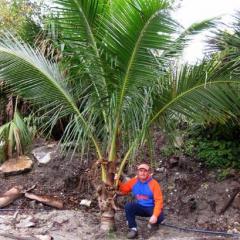
2026 2026_02 - Florida Palmageddon Observations and Damage Photo Thread
Bazza replied to idontknowhatnametuse's topic in FREEZE DAMAGE DATA
Yes.....utilis. -

Master of Puppets!
JohnAndSancho replied to JohnAndSancho's topic in OHANA NUI - OFF TOPIC SUB-FORUM
Yep! That and Lithium and Rock The Bells are in a steady rotation. Don't judge me for this one but I scroll the pop stations looking for Sabrina Carpenter too. -
Guys, I've sold a bunch of stuff on here and everyone says they're happy in DMs but no thread. @kinzyjr @PALM MOD am I allowed to screenshot those dms and post them here? I also have 100% feedback on eBay. I'm not Phil from Jungle Music with the 2x4 cases but I pack things the way I'd want to receive them.
-
I've got Philodendron and colocasia and alocasia coming out of various orifices in my body. Obvs they're gonna be too big to sell soon so let me know if you're looking for something and I probably have it.
-
Pindo, Mule or Alfredii for front yard?
SCVpalmenthusiast replied to SCVpalmenthusiast's topic in DISCUSSING PALM TREES WORLDWIDE
Awesome 🫶 do you have it in shade? -
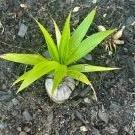
San Diego Coconut Trees
SouthernCATropicals replied to SouthernCATropicals's topic in DISCUSSING PALM TREES WORLDWIDE
A few more, here’s a close up of a frond I showed in the last post for growth comparison. then this one The visible trunk form a distance 😍- 168 replies
-
- coconutpalm
- coconut
-
(and 3 more)
Tagged with:
-
**Harvested February 2026** These seeds are from a wild specimen near Weeki Wachee Springs. Me and my boys were fortunate enough to stumble across this palm during a hike back in 2018 and have harvested seed each year since. They're not as into it now as they were when they were little (I get it, extracurricular HS activities can have that effect), so I've decided to part with most of this years seed harvest. The variegated yields vary each season, but never dissapointing. Between palmtalk, word of mouth, social media, and ebay, hundreds of variegated offspring from this tree have been shipped out each year. FULL SUN IS A MUST and paitence is a big key too, some specimens show variegation as soon as the first leaf emerges from the dirt. Others are green as can be for the first two years, then one day you look and the newest leaf emerging with every leaf that follows is variegated...deep regret then sets in when you think about all the 'green' ones that were culled too early Cleaned, Float Tested, and Ready to Sow Minimum order of: 50/$45 or 100/$75 , 250/$150 , 500/$250 Shipping an additional $6 for USPS Ground Advantage (w/ Tracking) Venmo, CashApp, credit cards or debit cards (via square) accepted PM if interested
-
I think you are correct! Same leaf style and straight without the curvy waver you see in A merrellii. Trunk seems appropriate size. Thank you!
-
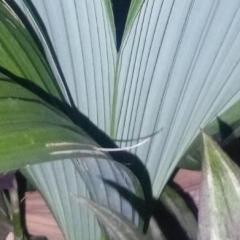
Adonidia merrillii/Christmas Palm
idontknowhatnametuse replied to bubba's topic in DISCUSSING PALM TREES WORLDWIDE
Archontophoenix! -

Ordered some f2 dypsis decipens hybrids and one normal dypsis decipens for zone 9a Lancaster any tips
888.ho3s replied to 888.ho3s's topic in COLD HARDY PALMS
Okay thank you my dypsis decipens came do u have any tips or anything since we live in similar climates ur just a bit more mild in the winter -

Close up (macro) photos of palm seeds
mrjc replied to Kestas's topic in DISCUSSING PALM TREES WORLDWIDE
Most if not all of the species in the cocosea tribe are edible. Genus like bactris, butia, sygarus, cocos, attelea a lot more than that. I like to research ediblity and how things are used so that’s mostly why I know. I mean why not you probably walk past so many tasty things in a day you could snack on for free. lol how did you cut them so cleanly too? Impressive work. -
Brad Mondel started following Mule palm
-
Hi I'm looking for a mule palm that's maybe 1 gallon sized. The only ones local are big monsters and I don't need all that. 😆
-

Fake Spring and Anxiety
JohnAndSancho replied to JohnAndSancho's topic in DISCUSSING PALM TREES WORLDWIDE
I hope so. Because I just came across a deal I can't say no to. Once things can go outside and stay outside I'm fine, and if I was physically ok enough to drag everything out and back in I'd be fine - but if I was that physically ok I'd be working and would definitely not be this involved anyway -
Encephalartos Whitelockii E Kisambo E Nati x Hor ALL SOLD
-
(200x170).thumb.jpg.58db35068f600ea0c724f4da3ccaf224.jpg)
What is your current yard temperature?
Silas_Sancona replied to GottmitAlex's topic in WEATHER / CLIMATE
A surprisingly pleasant 85F at 5:32PM.. Immediate forecast, thru the start of next week at least, looks locked in.. More breeziness tomorrow though. Beyond that... some interesting ( but fun to glare at ) " scare - cast scenarios " being tossed around in the model runs today related to the potential return of the heat later on, ..particularly, today's 18z runs from the GFS, AIGFS, and EC - AIFS.. *** Keep in mind: this far out, while each is something to watch over the coming days, NONE of these particular model run outcomes are to be taken seriously. **** Important reference points, particularly for the AZ low desert cities: 582mb heights = Surface /2m temps generally landing somewhere in the 80s ..maybe a few 90s. 585mb heights = Mid 80s / more 90s.. 588... Widespread, " Somewhere in the 90s " kinda heat, isolated / widely scattered readings reaching 100 possible. 591... Upper 90s likely / 50%+ chance of widespread 100s / Some possible 100+ readings. AIGFS = ..The tamest: Relatively flat ridging across the Southwest / Troughiness over the Pac N.W. helping to keep the ridge subdued.. Would get warm of course, but nothing too crazy.. GFS = Middle of the road: Building ridge but still somewhat subdued ..thru this run at least.. Warm, ..about to where we've been so far, maybe a touch hotter. 588mb heights centered just to our west / southwest rather than overhead. EC - AIFS = What the heck is this model seeing: STRONG and pronounced ridge w/ 591mb heights slung over Eastern AZ / Western NM / and TX, and far Northern MEX.. 585mb height line reaching the SF Bay Area / Salt Lake City area. = Would be pretty early to see such a strong ridge develop over the area. Surface temps in this scenario from both Tidbits and Pivotal reach / breach 100F locally. Should this particular thought become reality, and we saw temps reach / exceed 100F, it would occur a few days earlier than the date it actually occurred, March 26th, 1988. 100F also represents the hottest reading ever recorded in March. ..We'll see which ..if any.. of these scenarios lies just beyond the reliable forecast horizon.. That said, ...the way this year has started off, can't toss this outcome / something close to it in the dumpster just yet, either. -
.thumb.jpg.1a7e1dfdff8ffa26d19bd77c999e6890.jpg)
Close up (macro) photos of palm seeds
Kestas replied to Kestas's topic in DISCUSSING PALM TREES WORLDWIDE
They do look yummy 😄 😄 . So, the inside of the butia seed is edible? I knew that about the fruit but wasn't aware about the inside. I have tens of thousands of them so i will definitely try some. -

San Diego Coconut Trees
SouthernCATropicals replied to SouthernCATropicals's topic in DISCUSSING PALM TREES WORLDWIDE
March 4, 2026 This was a very warm winter, constant heatwaves with temperatures in the 80’s. I only ever used the AC 3 times last summer and I used it with this last heat wave when it got to 90f. This big one shot out a new frond. It’s getting really wide. There was a night where it got to like 44f since I last posted and you might be able to see the bronzing on the older fronds if you look closely. This yellow one is looking really good I think. I have been pumping it full of fertilizer constantly…I think it responds to that. Ever since late January, the White fly for the most part stopped attacking this one. I think that means it’s very healthy because of all of the heat and fertilizer because white fly attack weak plants. I should probably plant it soon in ground. I just have no idea where such a big plant could fit. It might replace the inga in the front. This one has had constant issues with white flies. It’s not growing much but that is what it did last year too.- 168 replies
-
- 1
-

-
- coconutpalm
- coconut
-
(and 3 more)
Tagged with:
-

Close up (macro) photos of palm seeds
mrjc replied to Kestas's topic in DISCUSSING PALM TREES WORLDWIDE
Am I the only one who thinks these look so yummy? Butia seeds especially if you have tons I’d recommend trying one. There like a more buttery but less flavorful coconut. -
You are likely correct. I was moving quickly and have the tendency to sometimes not be precise when it comes to palm identification. When I had decided to target Christmas palms, I did notice that there were numerous tall and slender palms with crown shafts similar to Ptychosperma elegans that I attempted to avoid in this group of pictures. After looking at the particular specimens that you mentioned, I believe that you are correct. What species do you believe this to be?





.thumb.png.04b3487b96ff29c55b8a8994b91f62b2.png)
